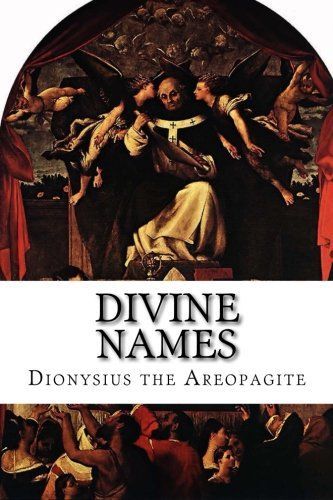
Divine Names
Pseudo-Dionysius the Areopagite, also known as Pseudo-Denys, was a Christian theologian and philosopher of the late 5th to early 6th century (writing before 532), probably Syrian, the author of the set of works commonly referred to as the Corpus Areopagiticum or Corpus Dionysiacum. His works are mystical and show strong Neoplatonic influence. For example he uses Plotinus' well-known analogy of a sculptor cutting away that which does not enhance the desired image, and shows familiarity with Proclus. He also shows influence from Clement of Alexandria, the Cappadocian Fathers, Origen of Alexandria, Parmenides and others. The Corpus is today composed of Divine Names, Mystical Theology, Celestial Hierarchy, Ecclesiastical Hierarchy, and ten epistles. Seven other works, namely Theological Outlines, Symbolic Theology, On Angelic Properties and Orders, On the Just and Divine Judgement, On the Soul, On Intelligible and Sensible Beings, and On the Divine Hymns, are mentioned repeatedly by pseudo-Dionysius in his surviving works, and are presumed either to be lost or to be fictional works mentioned by the Areopagite as a literary device to give the impression to his sixth century readers of engaging with the surviving fragments of a much larger first century corpus of writings.